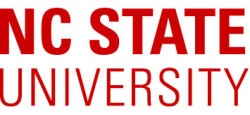Badges
Certifications
jungkoo_kang has not earned any certificates yet.
Work Experience

Software Engineer
Ford Motor Company• October 2018 - Present
• Developed a cloud service (RoadCode (City Insight)) to analyze and visualize spatio-temporal, real-time data for transportation safety with Global Data, Insight, and Analytics (GDI&A) team (2nd Place at ’Solving for Safety Visualization Challenge’ by U.S. Department of Transportation (https://www.transportation.gov/solve4safety/solve4safetysubmissions) (https://medium.com/cityoftomorrow/how- ann-arbor-michigan-became-a-living-lab-for-city-mobility-daf93672b5d0) (https://www.fordlabs.com/case-studies/roadcode)) • Created a cloud service with a natural language processing (NLP) pipeline to analyze customer survey data in text or voice for improv- ing product-market fit. • Won 2018 Hackathon at Fordlabs by leading a team to develop software to automate routine tasks for engineers. • Architected and developed cloud, real-time services to 1) manage processes for multi-billion dollar vehicle recalls and 2) consolidate the related data with efficient data search. • Architected and developed cloud services to 1) automate IT infrastructure billing processes (office automation) and 2) visualize finan- cial data. • Created a cloud service for managing constraints on production at Livonia Gear Factory • Trained software engineers at the Information Technology Organization and the Livonia gear factory. • Develop a cloud service for creating continuous integration (CI) and deployment (CD) pipelines for early-stage cloud services

Software Engineer
Menlo Innovations• July 2018 - October 2018
• Develop a cloud-based, real-time system to predict heart failure with a machine learning algorithm (Decision tree). • Manually converted statistical (Matlab) code into Java code for the deployment on the AWS serverless architecture.

Postdoctoral Researcher
North Carolina State University• September 2016 - June 2018
- Postdoctoral Researcher at The Center for Quantitative Sciences in Biomedicine, Department of Mathematics. • Developed a detailed, epidemiological simulation model (C++ for multithreading) containing individual-based model components, cohort-based model components, and differential equations to investigate dengue virus transmission by Aedes aegypti mosquitoes. • Created code for a human-trip sub-model > 20 X faster than the original code. • Incorporated Geographic Information System (GIS) components and a complex human trip model into the epidemiological model for realistic disease transmission over space. • Created genetic simulation algorithms to simulate large mosquito genetic data (> 1,000 loci) acquired by using high-throughput Next Generation Sequencing (NGS) methods • Developed a C++ application for molecular biologists/geneticists to facilitate the customized molecular biological data acquisition, processing, and management for mosquito samples from the Centers for Disease Control and Prevention (CDC) • This project is funded by National Institute of General Medical Sciences (NIH) Program Project Grants (P01).

Postdoctoral Researcher
Umeå University• November 2014 - August 2016
- Postdoctoral Researcher at Integrative Science Laboratory (IceLab) • Created a detailed numerical simulation model (C++ for multithreading) with individual-based model components and difference equations to study the contemporary evolution (eco-evolution) of foraging and sexual traits of a fish species (alewife) in size-structured food webs. • Created algorithms to reduce the computational cost for simulating a large number of individuals (> 100,000) with numerous at- tributes. • Funded by Postdoctoral Research Associate Fellowship from Kempe Foundation (http://www.kempe.org/) in Sweden

Postdoctoral Researcher
University of Wisconsin-Madison• November 2013 - October 2014
• Constructed a general model (Java application for multi-threading) with individual-based model components, pedigree simulator components, a machine learning algorithm (deep neural network (DNN) for posterior distribution correction), and a Approximate Bayesian Computation (ABC) sampler to estimate recent demographic characteristics (i.e. asymetric dispersal rates and census population size) of species requiring conservation efforts. • Created a new summary statistic using dyadic relatedness (kinship) of individuals sampled at different locations in different time for Approximate Bayesian Computation. • Developed algorithms to reduce the computational cost for simulating genetic information during pedigree simulation processes, which were inspired by a coalescent modeling approach. • This software allows conservation biologists/molecular biologists to estimate demographic parameters for endangered species by using big genomic data. • This numerical approach produces more accurate demographic parameter estimates than conventional Fst -based approaches for species with recent demographic changes. • Funded by U.S. National Science Foundation (NSF) (Award number: 1257535)
Education

University of Illinois at Urbana–Champaign (UIUC), Champaign
Entomology, PhD• August 2008 - May 2013
* Research focus: numerical simulation, scientific computation, statistics * Dissertation: Modeling Insect Resistance to Transgenic Corn and Cowpea * Developed four detailed, species-specific, demographic/genetic models (C++ applications) using difference equations and cohort- based model components to forecast the evolution of insect resistance to genetically modified (GM) crops expressing insecticidal proteins. * Conducted statistical analysis about bioassays for developing complex numerical simulation models. * Published five research papers (four first-authored + one second-authored papers) * Funded by 1) the Biotechnology Risk Assessment Research Grant Program 2007-39211-18461 from the United States Department of Agriculture-National Institute of Food and Agriculture and 2) Dry Grain Pulses Collaborative Research Support Program (CRSP) by the Bureau for Economic Growth, Agriculture, and Trade, U.S. Agency for International Development (Grant No. EDH-A-00-07-00005).

Purdue University, West Lafayette
Entomology, MS• August 2005 - December 2007
• Research focus: ecology, behavioral ecology, evolution, insect resistance management • Dissertation: Evaluation of Factors Influencing Male Mating Behavior in the Western Corn Rootworm, Diabrotica virgifera virgifera LeConte • Conducted laboratory/field research, and statistical analysis about insect behavior 1 ) to test important assumptions in insect resis- tance management (IRM) models and 2) to provide parameter estimates for detailed, species-specific IRM models. • Published two first-authored research papers

Korea University, Seoul
Agrobiology, BS• March 1997 - August 2004
* Research focus: Evolutionary ecology * Dissertation: The Sex Ratio of Progeny of female Anisopteromalus calandrae in Relation to Size * Investigated the evolution of parasitoid wasp laying eggs on rice weevil larvae.
Links
Skills
jungkoo_kang has not updated skills details yet.